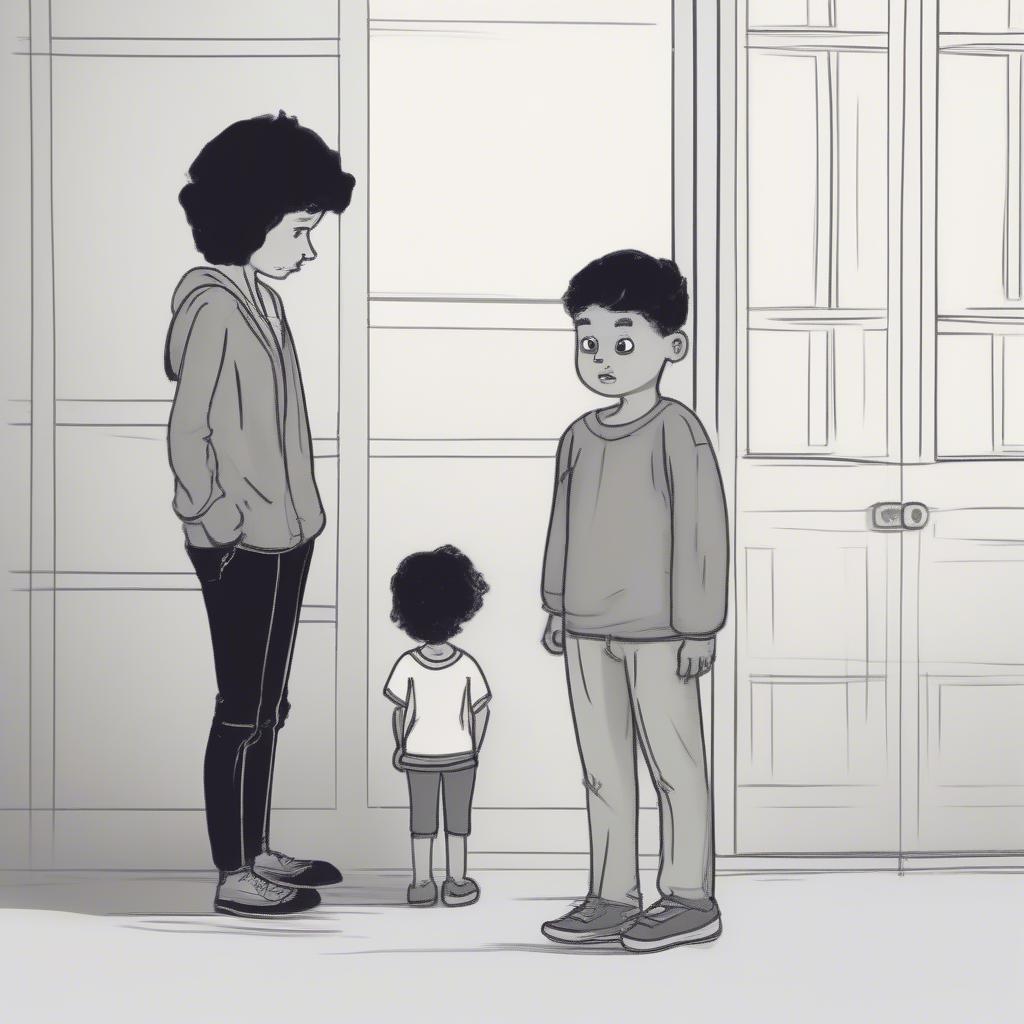Can A Covert Narcissist Love Their Child? This complex question often arises when trying to understand the dynamics of families affected by covert narcissism. It’s a challenging topic, as love, especially parental love, is often viewed as unconditional. However, when narcissism enters the picture, the traditional understanding of love becomes distorted.
Understanding Covert Narcissism
Covert narcissism, also known as vulnerable narcissism, is a less obvious form of narcissistic personality disorder. Unlike the stereotypical grandiose narcissist, covert narcissists are often shy, withdrawn, and highly sensitive to criticism. They crave admiration and validation, but instead of demanding it outright, they tend to play the victim, seeking sympathy and attention through their perceived suffering.
How Covert Narcissism Impacts Parenting
Covert narcissists’ need for validation often extends to their children. They may see their children as extensions of themselves, rather than independent individuals. This can lead to a range of problematic parenting behaviors, including:
- Conditional Love: The child’s worth is tied to their ability to meet the narcissist’s needs and expectations.
- Emotional Neglect: The narcissist may be unable to empathize with and respond to their child’s emotional needs.
- Manipulation and Control: Covert narcissists often manipulate their children to get their needs met, using guilt, shame, and emotional blackmail.
- Parentification: The child is forced to take on adult responsibilities and emotional burdens, often becoming the parent’s confidante or caretaker.
 Covert Narcissist Parent-Child Interaction
Covert Narcissist Parent-Child Interaction
Can They Love? The Complexities of a Narcissist’s “Love”
The question of whether a covert narcissist can love their child is not a simple yes or no. Their capacity for love is often limited and distorted by their own deep-seated insecurities and needs. While they may feel affection and attachment towards their child, it is often intertwined with their own ego and self-image.
A Conditional Bond
For a covert narcissist, love is often conditional. They may express love and affection when their child is meeting their needs, validating them, and making them look good. However, when the child asserts their independence, expresses different opinions, or fails to meet their expectations, the narcissist’s “love” can quickly turn to withdrawal, criticism, or even resentment.
 Narcissist and Conditional Love
Narcissist and Conditional Love
Recognizing the Signs
Recognizing the signs of covert narcissism in a parent can be challenging. They are often skilled at presenting a vulnerable and sympathetic facade, making it difficult for others to see the underlying dynamics. Some common signs include:
- Hypersensitivity to Criticism: They react strongly to even mild criticism, often taking it as a personal attack.
- Playing the Victim: They frequently cast themselves as the victim in various situations, seeking sympathy and attention.
- Passive-Aggressive Behavior: They express their anger and resentment indirectly, through sulking, sarcasm, or subtle manipulation.
- Lack of Empathy: They struggle to understand and respond to their child’s emotional needs.
Long-Term Effects on Children
Growing up with a covert narcissistic parent can have profound and long-lasting effects on a child’s emotional and psychological well-being. They may struggle with low self-esteem, anxiety, depression, and difficulties forming healthy relationships.
 Effects of Narcissistic Parenting
Effects of Narcissistic Parenting
Moving Forward: Seeking Support and Healing
If you suspect you grew up with a covert narcissistic parent, seeking support and understanding is crucial for healing. Therapy can provide a safe space to process your experiences, develop healthy coping mechanisms, and rebuild your self-esteem.
Can a covert narcissist love their child? While their love is often distorted and conditional, understanding the dynamics of this complex relationship is the first step towards healing and moving forward.
FAQ
- What is the difference between covert and overt narcissism?
- How can I set boundaries with a covert narcissistic parent?
- Are children of covert narcissists more likely to become narcissists themselves?
- What are some coping strategies for dealing with a covert narcissistic parent?
- Can therapy help me overcome the effects of having a covert narcissistic parent?
- How can I protect my children from a covert narcissistic grandparent?
- What are some resources for learning more about covert narcissism?
Other Relevant Articles
- Understanding Narcissistic Personality Disorder
- The Impact of Narcissism on Families
- Healing from Childhood Trauma
- Setting Healthy Boundaries in Relationships
Need further support? Contact us at Email: contact@daiduongtranhba.com, Address: Michigan Ave, Suite 3100, Chicago, IL 60611, USA. We offer 24/7 customer support.

